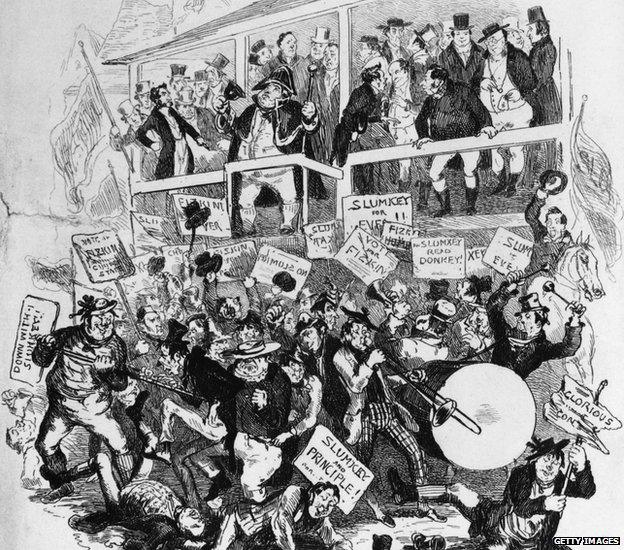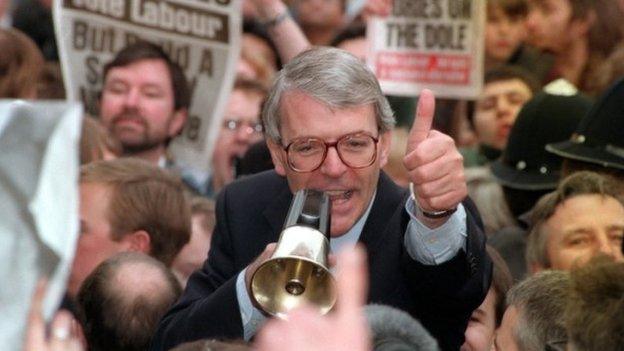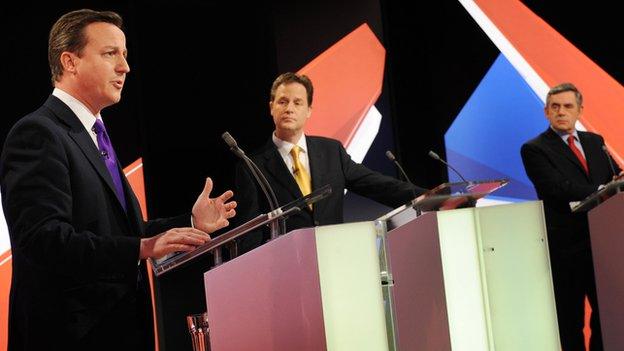The Vocabularist: Where did the word 'hustings' come from?
- Published

The Eatanswill hustings
At election time we use the word "hustings". Where did it come from, asks Trevor Timpson.
Everyone is having hustings at the moment - not just staged by all sorts of locations, external and interest groups, external for May's general election, but also in America where the election isn't for ages yet, external, and for even more important posts, like the editor of the Guardian, external.
It sounds a bit onomatopoeic, with the rival candidates standing on a platform and husting angrily at each other.
The most famous election in literature, at Eatanswill, in Dickens's The Pickwick Papers, sees the unfortunate Mr Pickwick accidentally pushed up on to the hustings platform where he looks down on a scene "from whence arose a storm of groans, and shouts, and yells, and hootings, that would have done honour to an earthquake".
The word has a tantalising Nordic tang of herrings and smorgasbord to complement the rotten tomatoes of the traditional British poll. In most Scandinavian languages "ting" or "thing" means assembly, as in the the names of the parliaments of Denmark, Norway and Iceland.
And as the Vikings left their linguistic fingerprints all over these islands, the word appears in place names from Dingwall (assembly field) to Thingoe (assembly mound), and in the name of the Manx parliament, the Tynwald.
As for the "hus" (or house) part, some say it meant an assembly held indoors, some that it was a gathering of the retainers of a leader's house or family.

John Major's soapbox tirades in 1992 recreated some of the excitement of Eatanswill hustings...
But the word didn't go straight from ancient Scandinavian politics to modern politics. First the hustings came to mean the main civil court of the City of London - perhaps from as early as Alfred the Great. It may have been founded by Danes, external living in London - it was certainly confirmed in its powers by the Danish kings of England in the 11th Century.
From the 15th Century the word picked up a final "s"; by the 17th Century it had started to mean the the platform on which the City dignitaries sat during the court, and then any official platform.
By the 18th Century it was the platform on which election candidates were nominated, and from where they addressed the voters.
The nearest equivalent today is the TV debate - but nothing could be more staged and artificial. To echo the rough-and-tumble of the Eatanswill hustings you surely need to go out on to the streets, to the American stump, John Major's soapbox and John Prescott's egg.

...Less spontaneous, but also a descendant of the hustings, is the modern TV debate.
Subscribe to the BBC News Magazine's email newsletter to get articles sent to your inbox.